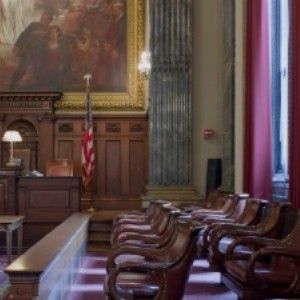What Is the Separate Sovereigns Doctrine (or the Dual Sovereignty Doctrine)?

The separate sovereigns doctrine or the dual sovereignty doctrine is an invention of the United States Supreme Court. It is a legal rule that allows separate government entities to operate independently for the purposes of Constitutional rules meant to restrain them, thereby allowing them to circumvent Constitutional protections of the people.
The Supreme Court has upheld this numerous times for more than 150 years with regard to the prohibition against double jeopardy. Because various layers of government are, the Court claims, "separate sovereigns" (e.g. the federal government, a state government, a federally recognized tribal government, etc.), each of these so-called sovereigns is allowed to prosecute people for the same offense, despite the Fifth Amendment's clear prohibition of this.
In his dissent in the recent case of Gamble v. United States (2019), Supreme Court judge Gorsuch explained where the Court has erred in its understanding of sovereigns:
"The Court seems to assume that sovereignty in this country belongs to the state and federal governments, much as it once belonged to the King of England. But as Chief Justice Marshall explained, “[t]he government of the Union . . . is emphatically, and truly, a government of the people,” and all sovereignty “emanates from them.” Alexander Hamilton put the point this way: “[T]he national and State systems are to be regarded” not as different sovereigns foreign to one another but “as ONE WHOLE.” Under our Constitution, the federal and state governments are but two expressions of a single and sovereign people."
Supreme Court judge Ruth Bader Ginsburg, also dissenting, makes the same point:
The notion that the Federal Government and the States are separate sovereigns overlooks a basic tenet of our federal system. The doctrine treats governments as sovereign, with state power to prosecute carried over from years predating the Constitution... In the system established by the Federal Constitution, however, “ultimate sovereignty” resides in the governed... Insofar as a crime offends the “peace and dignity” of a sovereign, Lanza, 260 U. S., at 382, that “sovereign” is the people, the “original fountain of all legitimate authority,” The Federalist No. 22, at 152 (A. Hamilton); see Note, Double Prosecution by State and Federal Governments: Another Exercise in Federalism, 80 Harv. L. Rev. 1538, 1542 (1967). States may be separate, but their populations are part of the people composing the United States.
Now, according to at least one circuit court of appeals, the speedy trial guarantee is likewise further degraded from its already sorry state. According to the Court, separate speedy trial clocks run one after another in the various layers of government without the time spent awaiting trial at one level (for instance, the state) counting as time spent awaiting trial in another so-called sovereigns' legal system (for instance, in federal court). This would not be the case were the many layers of government treated as a whole system incorporating different expressions of one sovereign people.
< Previous Question Next Question >
-
Estimated Convictions Obtained by Plea Bargain
97%
-
Extra Punishment for Refusing a Plea Deal
64%
-
Rank of U.S. in Incarceration
1
-
Years FIJA Has Fought for Jury Rights
36


